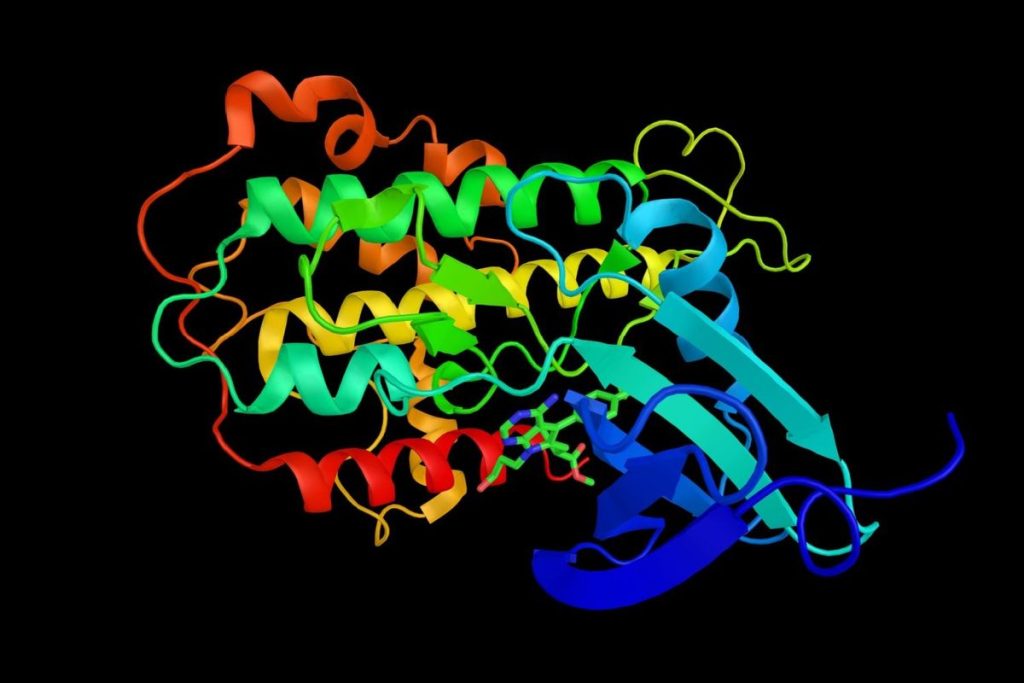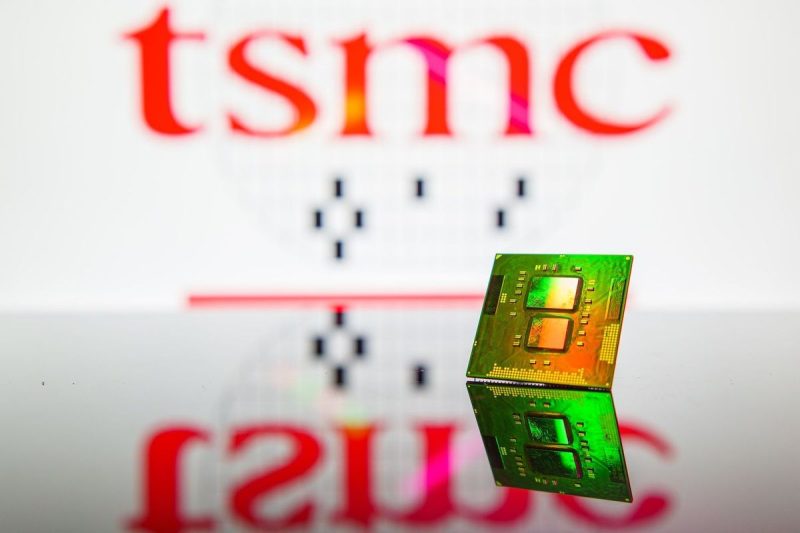How to Invest in AlphaFold Stock

In a remarkable convergence of biology and artificial intelligence (AI), AlphaFold has emerged as a game-changer in the quest to understand the building blocks of life.
Developed by DeepMind, a subsidiary of Alphabet (NASDAQ:GOOGL), this AI system can accurately predict the intricate 3D structures of proteins, a feat that has challenged scientists for decades and earned its developers Demis Hassabis and John Jumper the Nobel Prize in Chemistry on October 9, 2024.
In this article:
What is AlphaFold?
AlphaFold is an AI program that can predict protein structures by analyzing massive databases of known protein shapes and their corresponding amino acid sequences. It was trained and developed on Google’s supercomputers.
AlphaFold 2, the second iteration of the program, is accessible via its open-source code and a public database of protein structure predictions, enabling researchers to access pre-computed structures. Researchers can also download the program and run their own experiments.
DeepMind released AlphaFold 3 in May 2024 with limited access, with some capabilities accessible through the AlphaFold Server. Full access to the model is expected eventually, but no release date has been set.
What is DeepMind?
Inspired by neuroscience, DeepMind is a startup specializing in developing general-purpose AI. The company’s AI systems use a type of machine learning called reinforcement learning, where the AI learns through trial and error by interacting with its environment. DeepMind’s objective was to “solve intelligence, and then solve everything else.”
DeepMind was launched in London in 2010. Demis Hassabis, a British computational neuroscientist, was a co-founder of DeepMind, alongside Shane Legg, a machine learning researcher, and Mustafa Suleyman, an AI entrepreneur who left the company in 2019.
Researchers originally used games to test their programs’ learning capabilities. The company had a major breakthrough in 2013 when it developed an AI algorithm that could learn how to play Atari games just by observing the game screen, with no human input or instructions. The company’s findings were presented at the NIPS Deep Learning Workshop in December 2013.
On January 27, 2014, shortly after DeepMind published its Atari research paper, the company was acquired by Google for around US$650 million, and eventually integrated its technology into Google’s product offerings such as Google Maps and Google Assistant. In 2023, DeepMind merged with Google’s deep learning AI research team, Google Brain, to form Google DeepMind.
Google’s acquisition enabled DeepMind to scale and accelerate its research. DeepMind inked a deal with London-based Moorfields Eye Hospital in July 2016 to begin training AlphaFold to recognize signs of eye disease in medical images.
The same year, DeepMind began developing AI systems that would be able to solve the “protein folding problem,” a long-standing goal in scientific research.
In 2017, computer scientist John Jumper joined DeepMind as a research scientist who led the development of AlphaFold. Jumper’s background in computational biology made him uniquely qualified to apply machine learning to the complexities of protein folding.
The culmination of DeepMind’s effort came on October 2, 2024, when Hassabis and Jumper were awarded the Nobel Prize in Chemistry for their work on AlphaFold, cementing the program’s status as a transformative tool in the scientific community.
How does AlphaFold work?
AlphaFold uses machine learning to predict the 3D structure of a protein based on its sequence of amino acids, which are like a list of ingredients that make up the protein’s chemical composition.
A protein’s amino acid sequence determines its unique shape through a process called protein folding. In turn, a protein’s shape determines its function.
When a protein folds incorrectly, it can stop functioning properly or become toxic. Protein misfolding is believed to cause neurodegenerative diseases such as Alzheimer’s disease and Huntington’s disease, prion diseases, as well as type II diabetes, cystic fibrosis, cataracts and certain types of cancers.
By knowing the shape of a protein, researchers can identify biomarkers for certain diseases and study how each protein interacts with other molecules, enabling them to design drugs that will bind to a target.
Before AlphaFold, biology researchers had been trying to identify the 3D shape of proteins for decades, using a number of expensive and time-consuming experiments and computations that struggled to achieve high accuracy.
Advances in genomics, such as the discovery of thousands of new genes through the Genome Project, further complicated things; each time a new gene was identified, it implied the existence of a previously unknown corresponding protein, so the number of proteins needing identification kept growing.
Once a sequence is input into AlphaFold, it combs through its database of all 200 million known protein structures to find one with a similar structure. AlphaFold’s neural network is trained on the rules of protein folding and how different amino acids interact with each other, which is a massive amount of data. Based on this information, AlphaFold makes several predictions as to the protein’s 3D structure, then refines its prediction until it finds the single most likely structure.
AlphaFold’s achievements
In 2018, DeepMind entered AlphaFold into the 13th Critical Assessment of Structure Prediction (CASP) competition, a biannual experiment founded in 1994. AlphaFold won the event, accurately predicting 25 out of 43 proteins. The team that came in second place only predicted three out of 43.
“For us, this is a really key moment,” Hassabis told The Guardian at the time. “This is a lighthouse project, our first major investment in terms of people and resources into a fundamental, very important, real-world scientific problem.”
While the first AlphaFold model was a remarkable achievement, it still had limitations. The second model, AlphaFold2, was trained on a much larger and more diverse data set. At the CASP14 competition in 2020, AlphaFold 2 demonstrated remarkable accuracy, achieving a score of 92.4 out of 100 to win the contest for a second time.
This level of precision was unlike anything the scientific community had seen before from a computational prediction method. In the July 2021 issue of Nature, DeepMind published ‘Highly accurate protein structure prediction with AlphaFold,” which detailed the architecture and training methodology of AlphaFold and explored its potential applications.
The company also open-sourced AlphaFold 2’s code and created the AlphaFold Protein Structure Database, allowing scientists and researchers to run their own experiments and build on AlphaFold’s capabilities.
Recognizing the immense potential of AlphaFold’s technology to revolutionize drug discovery, Hassabis founded Isomorphic Labs in November 2021, a separate company dedicated to using AI to accelerate drug discovery. Meanwhile, DeepMind continued to advance AlphaFold 2. On July 28, 2022, the AlphaFold database reached a transformative milestone with the inclusion of every cataloged protein, roughly 200 million structures.
How to invest in AlphaFold and DeepMind stock
As private companies, DeepMind and Isomorphic Labs offer limited access to public investors, but there are still ways to benefit from their success.
DeepMind is a wholly owned private subsidiary of Google’s Alphabet, meaning investing in Alphabet provides an indirect way to gain exposure to DeepMind and AlphaFold’s potential.
Similarly, investing in pharmaceutical companies that utilize AlphaFold for drug discovery can offer investors indirect exposure to Isomorphic Labs’ success.
In December 2023, Isomorphic Labs established multi-year partnerships with major pharmaceutical firms Novartis (NYSE:NVS,SWX:NOVN) and Eli Lilly (NYSE:LLY). These agreements involve substantial upfront payments to Isomorphic Labs, with Novartis contributing US$37.5 million and Eli Lilly providing US$45 million.
The collaborations aim to leverage AlphaFold’s technology to expedite the design of new drug molecules and enhance the prediction of their interactions with target proteins, ultimately accelerating drug discovery processes. Together, these deals have the potential to generate over US$3 billion in revenue.
What’s next for AlphaFold?
DeepMind’s Nobel Prize win thrust AlphaFold back into the spotlight, sparking renewed interest in its potential and future development. AlphaFold 3, released in May 2024, represents a significant step forward, expanding on the technology’s capabilities beyond protein folding; AlphaFold 3 can predict the structures of protein complexes, which are groups of proteins that interact with each other.
AlphaFold 3 can also predict how proteins interact with other biomolecules like DNA, RNA and ligands, and model the effects of chemical modifications made to proteins. These improvements make AlphaFold 3 a powerful tool for understanding disease and developing new treatments.
AlphaFold has revolutionized the field of protein structure prediction, offering unprecedented accuracy and accessibility to researchers worldwide. Its impact on drug discovery and disease understanding is already evident, and the future holds even greater promise for this groundbreaking technology.
Securities Disclosure: I, Meagen Seatter, hold no direct investment interest in any company mentioned in this article.







